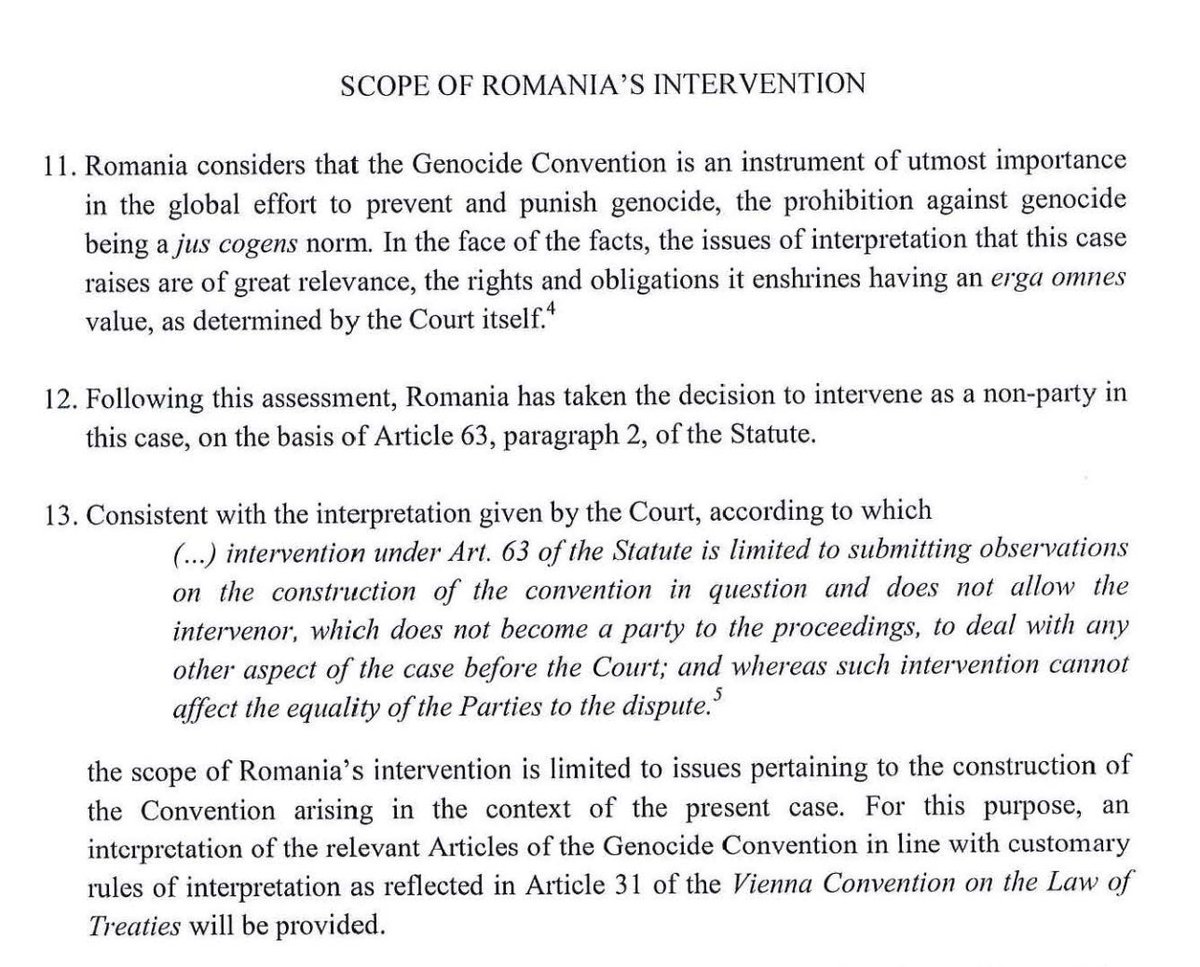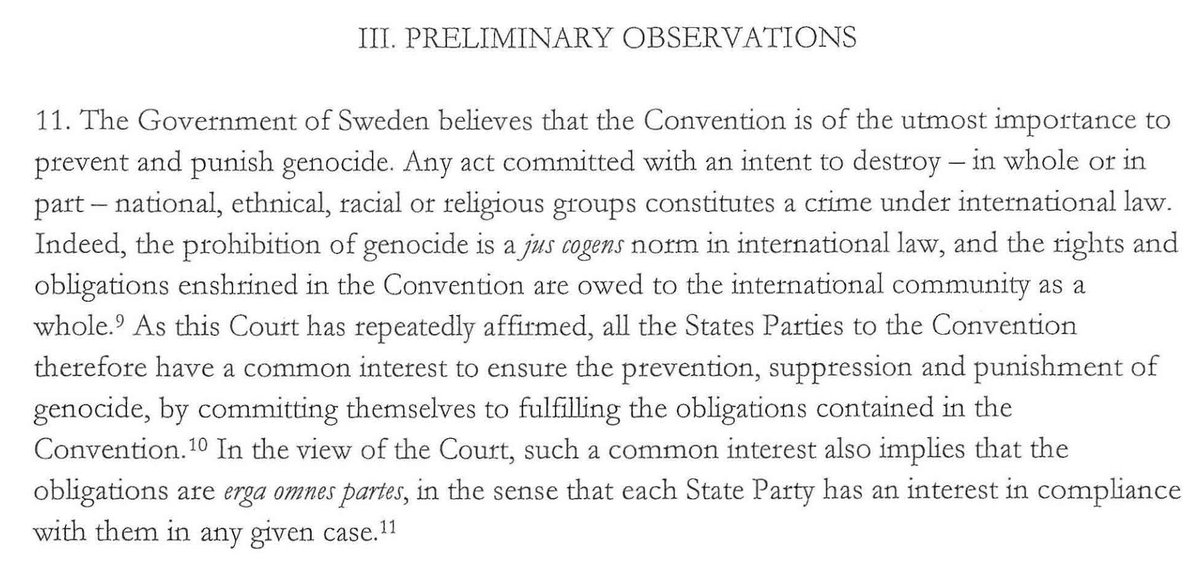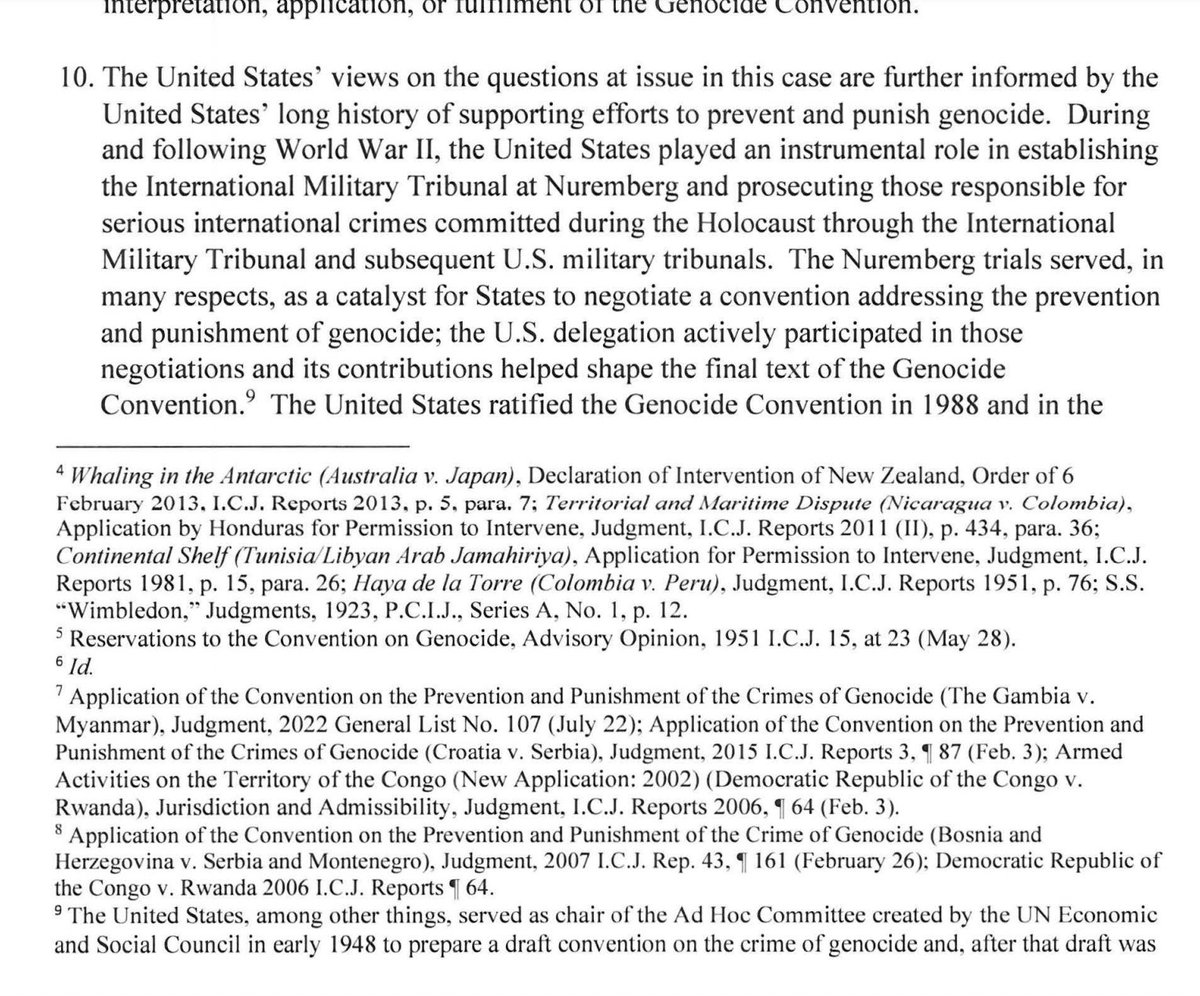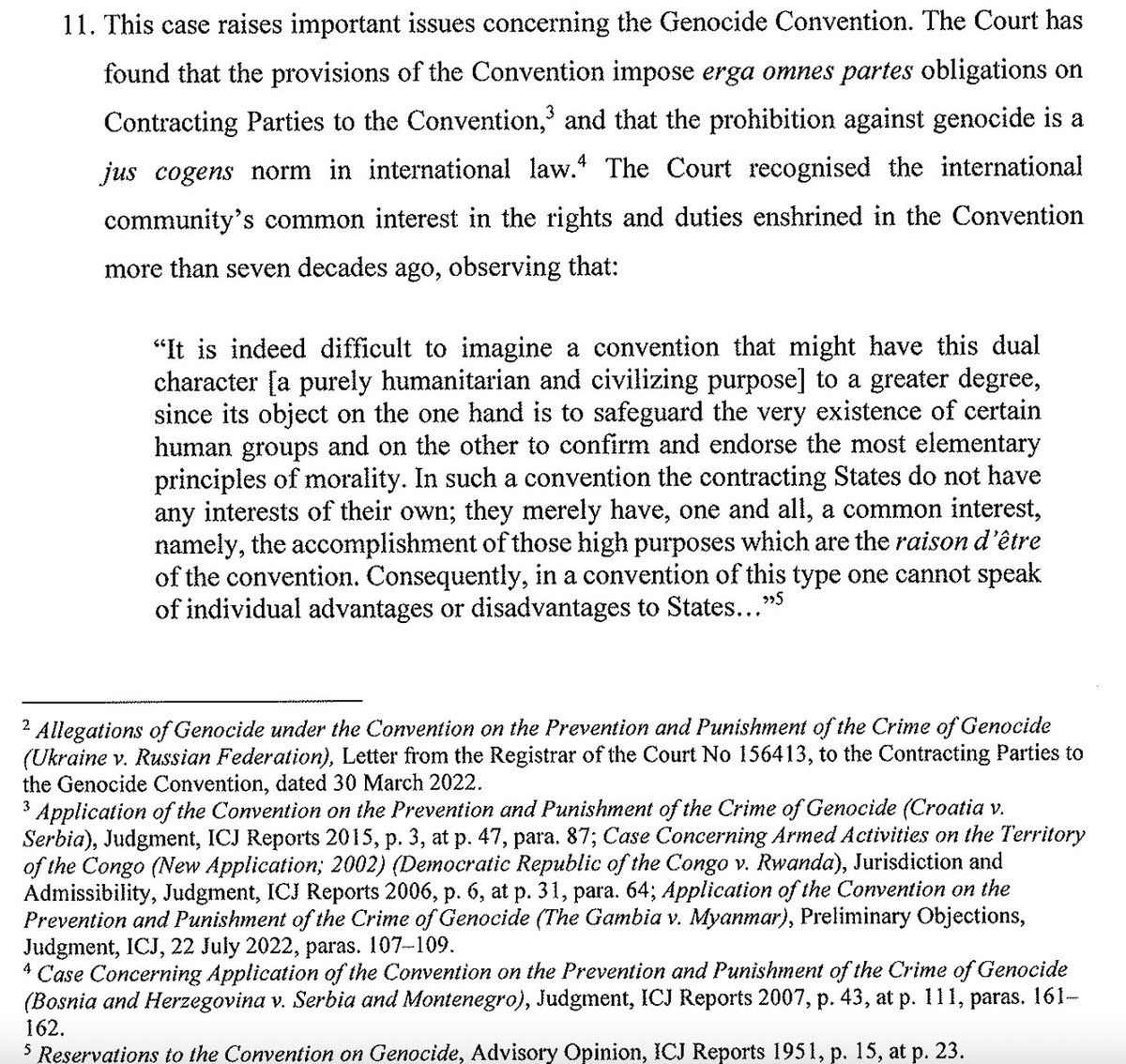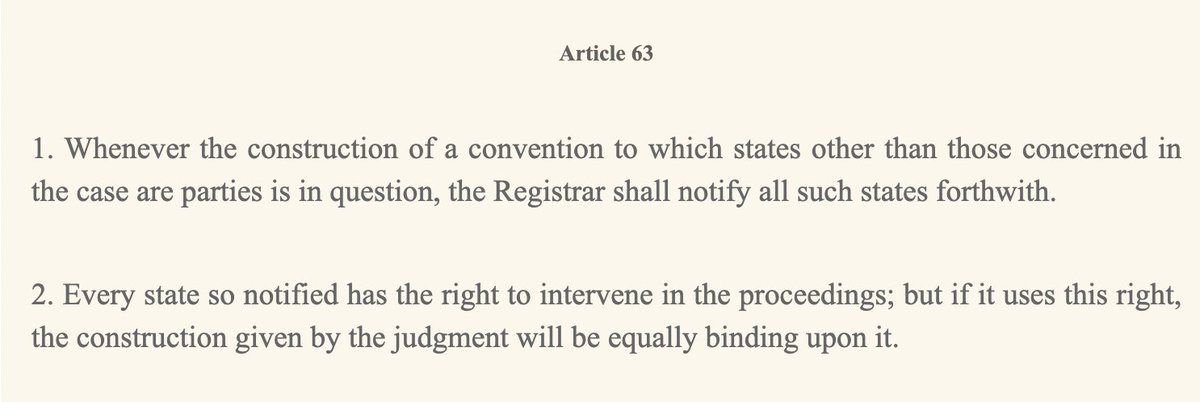
#France's declaration of intervention is now available on the #ICJ's website: icj-cij.org/public/files/c…
Some observations – c'est parti! 🪡 #Ukraine #Russia 1/19
Some observations – c'est parti! 🪡 #Ukraine #Russia 1/19
https://twitter.com/CIJ_ICJ/status/1570058494799187969
Starting off, France invokes its right to intervene under art 63 of the Statute, while also underlining the legal nature of the obligations under the Genocide Convention (no personal touch but does later quote the Court observing the prohibition on genocide is peremptory(!)). 2/ 



As for the provisions of the Genocide Convention it seeks to offer its construction, by reference to Ukraine's application France cites arts I, II, IV, VIII, IX. 3/ 



Before entering into the construction of the provisions themselves pursuant to the customary rules of interpretation, France begins with some general observations on good faith in the interpretation and application of treaties. 4/ 

In addition to the standard references, France argues that "good faith implies that the Convention's integrity must be respected". It adds that good faith demands a treaty be interpreted in light of its object & purpose and prohibits abusive and bias interpretations. 5/ 





In this light, France states that in its intervention it seeks to emphasise the cardinal importance of good faith in its various manifestations. 6/ 

France proceeds to its interpretation of art IX. It begins with standard references on the concept of "dispute", then emphasising that any dispute relating to the Convention's interpretation, application or fulfilment falls within the ICJ's jurisdiction. 7/ 





France then makes an intriguing argument – due to the inclusion of "fulfilment" in the compromissory clause, jurisdiction extends to disputes relating to the application of the obligation pacta sunt servanda regarding the Convention, including its implementation in good faith. 8/ 

It's possible that France has in mind the finding in the Nicaragua case that disputes over depriving a treaty's object and purpose do not pertain to the interpretation and application thereof. It is still far from clear that "fulfilment" has the effect of overcoming that. 9/ 

In any event, France then proceeds to the issue of non-violation. It notes the broad language in the French version of art IX, which speaks of state responsibility "en matière de génocide" (rather than "for genocide" in the English), as well as the terms "including those". 10/ 
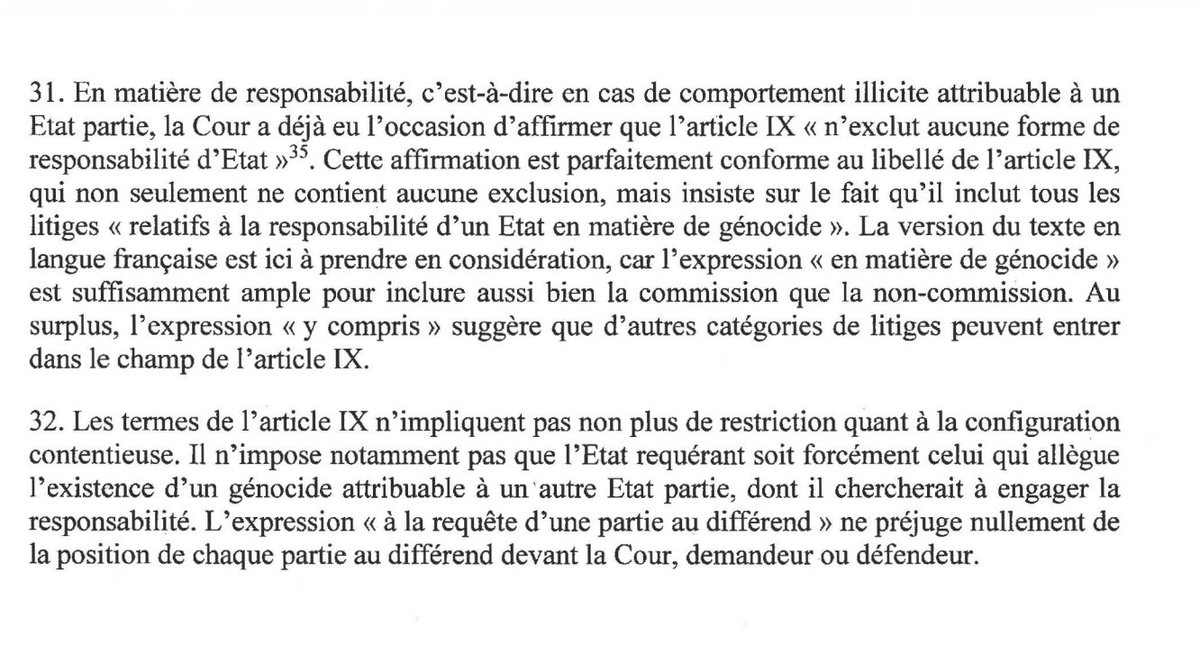
Like 🇬🇧🇸🇪🇷🇴, it also notes the language of "any party" in the compromissory clause. This all leads to the conclusion that the language is broad enough not to condition jurisdiction on the applicant being the party alleging a violation of the Convention. 11/
France then proceeds to consider the substantive provisions at stake in the Genocide Convention. Beginning with art I, France focuses on when the obligation of prevention is triggered; namely if genocide is occurring or if there is a serious risk thereof. 12/ 





On this basis, France argues that no action can validly be taken pursuant to the obligation of prevention if these conditions have not arisen. Presumably, this lays the ground for arguing that Russia had no obligation to prevent genocide vis-à-vis Ukraine. 13/
France then briefly touches upon arts II and III (definition of genocide and modes of liability). Rather than offering constructions, it states that it plans on providing the Court with information on its implementation of these provisions in its municipal legal system. 14/ 



Interestingly France cites art 31 of the #VCLT as the basis for relevance of its practice. Yet, surely, the Court will not be receiving information on subsequent practice of *all* state parties. Are we not (relegated to) the realms of art 32 VCLT? 15/
Proceeding to art IV (punishment), like 🇱🇻🇱🇹🇬🇧🇸🇪🇷🇴, France emphasises that the means concerned are judicial procedures – not collective punishment. Here, too, France states that it will provide information on its implementation of the provision. 16/ 

Moving on to art VIII (seising UN organs), France highlights how this provision privileges collective action in preventing genocide. 17/ 

To conclude, France's intervention is an interesting read. IINM it is the first to allude to information it is leaving out of its declaration but plans to supply during the proceedings.
Unsurprisingly, France also highlights nuances in the French version of Convention's text. 18/
Unsurprisingly, France also highlights nuances in the French version of Convention's text. 18/
France also (seems to) breaks ground in addressing tricky issue of Cinderella-ing the issue of frustration of object & purpose of the Convention into glass slipper of the compromissory clause. However, it remains to be seen whether it is persuasive. 19/FIN
• • •
Missing some Tweet in this thread? You can try to
force a refresh


